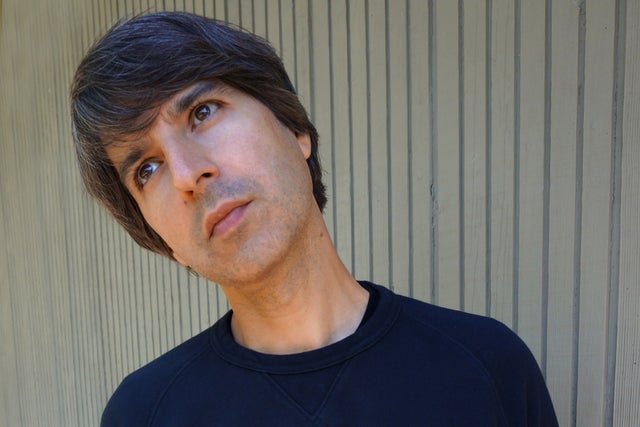Born in New York and raised in New Jersey, Demetri Martin built his stand-up on dry wordplay, drawings, and gentle musical asides.
Jokes that sketch themselves
He left law school, wrote for Late Night with Conan O'Brien, and won the Perrier Award at Edinburgh Fringe before creating
Important Things on Comedy Central. The Quick Draw era leans into a big sketchpad, clean lines, and jokes that click like small puzzles. A likely run of bits includes
Guitar One-Liners,
Palindrome Poem,
Big Pad Drawings, and
Harmonica Bumpers between topics.
Wordplay with strings attached
Expect a crowd that listens hard, laughs in waves, and spans longtime Comedy Central fans, comics nerds, and curious first-timers. You may spot couples trading favorite palindromes during intermission and a few folks clutching his books like field guides. Trivia: he often plays guitar and harmonica at once, and he published a long palindrome poem in his book, showing his love of symmetrical jokes. Heads up: details like the order of bits or which drawings appear can shift show to show, so take this run-through as an informed snapshot.
The Demetri Martin crowd, up close
Quiet rooms, big reveals
The scene skews book-in-bag casual, with clean sneakers, simple jackets, and the odd line-art tee that nods to past drawings. You hear quick bursts of laughter and those small 'ohh' sounds when a page flips to reveal the second meaning. Merch leans towards posters, books, and minimal shirts with a single pun or chart, and fans seem to like items they can re-read later.
Fans who savor the fine print
People swap favorite bits in the lobby, often quoting a single word or label rather than the whole joke. Chants are rare, but a crisp clap often greets the first appearance of the big pad and returns for the final flip. It feels welcoming to solo show-goers and friend pairs alike, with conversation that stays light and nerdy rather than loud. After the show, the talk tends to be about structure, callbacks, and which drawing landed best in that room.
How Demetri Martin builds the hour live
Timing as an instrument
Demetri Martin keeps his voice calm and flat, which makes left turns hit harder. He arranges the hour like small songs, moving from one-liners to drawings to short strums that reset the room. The guitar work stays simple on purpose, usually two or three chords that act like a metronome for punchlines. There is no band; he paces himself and layers small sounds so the joke leads.
Drawing as rhythm section
Lighting tends to be soft and even, letting the pad and marker do the heavy lifting when a reveal matters. A neat quirk: he often times page flips like drum hits, landing the flip on the laugh to extend the chuckle without saying a word. When he revisits a topic later, he will sometimes echo a chord from earlier so the callback reads even before he speaks. The overall effect is musical, but the music is there to frame silence, not to steal focus.
If You Like Demetri Martin, Try These
Kindred wordsmiths on tour
If you enjoy precise phrasing and tidy craft, you will likely also be into
John Mulaney for his crisp storytelling and exact rhythms. Fans of
Mike Birbiglia overlap thanks to thoughtful stories that land like short films and a warm, theater-ready pace.
Tig Notaro draws a similar crowd with dry timing, long pauses, and a love of understatement.
Why these names click
Across the Atlantic,
James Acaster shares the puzzle-box build and a taste for conceptual frames that pay off late. All four balance clean language with clever structure, and their shows favor attentive rooms where small details matter. They each craft arcs that feel composed without losing the looseness of stand-up. If your playlist leans toward smart, low-key comedy with surprising turns, this lane fits.


